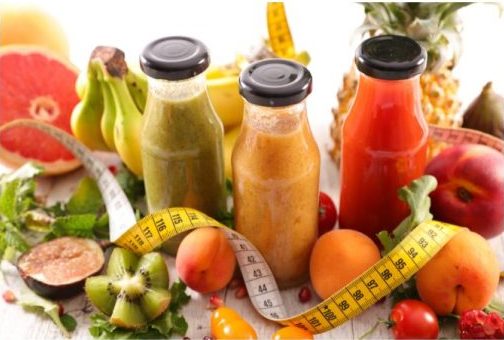Fact Vs. Myth: Detox Diets Cleanse Your Body

The idea that detox diets are required to rid the body of toxins and advance health is a prevalent misconception. Many people fall for detox myths, which are common misconceptions about the necessity and efficacy of detox diets and cleanses. In actuality, these diets are frequently superfluous, despite the claims of many detox programs to aid in the removal of toxic substances and enhance general health. The liver, kidneys, and digestive system are all part of the body’s highly efficient, inbuilt detoxification mechanism, which filters and gets rid of toxins without the need for specific diets. It is more advantageous to support the body’s natural processes through healthy habits like balanced meals, frequent exercise, and adequate water rather than depending on restrictive detox plans.
Understanding the Body’s Detoxification System
The Liver and Liver Health
The main detox organ in the body, the liver is in charge of removing toxins from the blood. Alcohol consumption significantly impacts liver health, with moderate drinking generally not harmful, but excessive intake leads to serious liver damage. It converts toxic chemicals, such as alcohol and narcotics, into water-soluble molecules that the body may eliminate through bile or urine. Additionally, the liver aids in the processing of metabolic waste and promotes general detoxification.
The Kidneys
The kidneys filter blood to eliminate surplus chemicals like water and electrolytes as well as waste items. Maintaining healthy blood pressure is crucial for optimal kidney function, which in turn supports effective detoxification. Urine is the subsequent excretion of these waste products. The kidneys support the body’s fluid and electrolyte balance, which is essential for general well-being and efficient toxin elimination.
The Digestive System
The digestive system breaks down food and gets rid of waste, which helps in detoxification. While the intestines aid in the removal of waste and toxins through bowel movements, the colon collects water and minerals from digested food. Effective waste elimination and general detoxification are supported by a healthy digestive system.
What are Detox Diets and Cleanses?
Detox diets and cleanses are dietary interventions designed to eliminate toxins from the body, promote weight loss, and improve overall health. These programs typically involve a combination of dietary changes, supplements, and other practices aimed at cleansing the body of harmful substances. Detox diets often involve a period of fasting or severe calorie restriction, followed by a strict diet of fruits, vegetables, and other nutrient-rich foods.
Detox diets and cleanses are often marketed as a way to:
- Remove environmental toxins from the body
- Improve liver health and function
- Boost the immune system
- Promote weight loss and weight management
- Improve overall health and well-being
However, it’s essential to note that the scientific evidence supporting the effectiveness of detox diets and cleanses is limited, and many experts consider them to be a form of pseudoscience. While the idea of detoxifying the body might sound appealing, the body already has highly efficient systems in place to handle toxins. The liver, kidneys, and digestive systems work continuously to filter and eliminate waste, making specialized detox diets unnecessary for most people.
The Problem with Detox Diets and Detox Myths
Lack of Scientific Backing
Many detox diets claim to cleanse the body of toxins and improve overall health, but there is little solid scientific evidence to support these claims. Many of these products are marketed as safe and effective methods to lose weight, despite a lack of clinical evidence supporting their efficacy. Research on detox diets often lacks credibility, with many studies showing no significant long-term benefits. While the body does require proper nutrition to function at its best, there’s no scientific consensus that specialized detox diets are necessary for the body’s natural detoxification processes.
Potential Harm
Some detox diets are highly restrictive, cutting out entire food groups or severely limiting calorie intake. This can lead to temporary weight loss but ultimately result in weight gain once normal eating habits resume. This can lead to nutrient deficiencies and other health risks, including fatigue, weakened immunity, and digestive issues. When the body is deprived of essential nutrients, it struggles to perform normal functions, which can undermine overall health rather than support it.
Quick Fix Promises for Weight Loss
Detox diets often promise rapid results, such as quick weight loss or improved energy levels, but these results are typically short-lived. Many detox plans focus on immediate changes rather than sustainable, long-term health improvements. Once the diet is stopped, the body may return to its normal state, and any benefits gained during the diet may be lost. The idea of a “quick fix” can be appealing, but it often doesn’t provide lasting improvements to health or wellness.
Dietary Supplements and Detox Diets
Dietary supplements are often used in conjunction with detox diets and cleanses to support the body’s natural detoxification processes. These supplements may include:
- Herbal extracts, such as milk thistle and dandelion root
- Vitamins and minerals, such as vitamin C and magnesium
- Probiotics and other gut health supplements
- Antioxidants and other anti-inflammatory compounds
While some dietary supplements may have potential health benefits, it’s essential to approach them with caution and consult with a healthcare professional before adding them to your detox diet or cleanse. Some supplements can interact with medications, exacerbate underlying health conditions, or cause adverse effects.
In summary, detox diets and cleanses are dietary interventions aimed at eliminating toxins from the body, but the scientific evidence supporting their effectiveness is limited. Dietary supplements may be used in conjunction with detox diets and cleanses, but it’s essential to approach them with caution and consult with a healthcare professional before adding them to your regimen.
Expert Insight
A healthy lifestyle that includes frequent exercise, balanced eating, and adequate water is the greatest approach to assist your body’s natural detoxification processes, according to experts. A healthy diet is essential for maintaining liver health and mitigating risks associated with obesity and nonalcoholic fatty liver disease. Instead of depending on rigorous detox diets, a balanced meal full of fruits, vegetables, lean meats, and whole grains offers vital nutrients to assist the digestive system, liver, and kidneys. Including lean protein in your diet, alongside other healthy foods like vegetables, fruits, seeds, and nuts, can aid in detoxification. While maintaining proper hydration aids in the kidneys’ effective removal of toxins, regular exercise encourages circulation and waste removal. Without the need for special detox diets, the body’s natural detoxifying organs can produce their optimum results when they are supported by these healthy practices. Better outcomes and general well-being are ensured by concentrating on long-term, sustainable health practices rather than short-term detox treatments.
Healthy Tips for Natural Detox
Stay Hydrated
Drinking plenty of water throughout the day helps the kidneys flush out toxins and supports overall bodily functions. Proper hydration ensures that waste is effectively removed from the body through urine.
Eat a Balanced Diet
A diet rich in a variety of nutrient-dense foods like fruits, vegetables, whole grains, and lean proteins provides the vitamins, minerals, and fiber needed to support the liver and digestive system in detoxifying the body. A balanced diet can also help maintain a healthy body weight, which is crucial for overall health and effective detoxification. These foods help maintain optimal metabolic health and assist in waste elimination.
Exercise Regularly
Regular physical activity boosts circulation, which aids in the removal of toxins through sweat and improves blood flow. Exercise also supports lymphatic drainage and enhances overall detoxification.
Get Adequate Sleep
Quality sleep is essential for the body’s detoxification processes, as it allows the body to repair and regenerate. Sleep supports liver function, helps balance hormones, and boosts the immune system, all of which contribute to effective detoxification.
Conclusion
The body already has very efficient detoxification systems through the liver, kidneys, and digestive system, so detox diets are not necessary. Without the need for specific diets, these organs function constantly to get rid of waste and pollutants. You may improve detoxification and maximize your health by adopting a healthy lifestyle that supports the body’s natural detoxification processes. This includes eating a balanced diet, exercising frequently, staying hydrated, and getting enough sleep. The best strategy for preserving optimum health is to concentrate on long-term behaviors that enhance general well-being rather than depending on stringent detox regimens.
The post Fact vs. Myth: Detox Diets Cleanse Your Body appeared first on Dumb Little Man.


